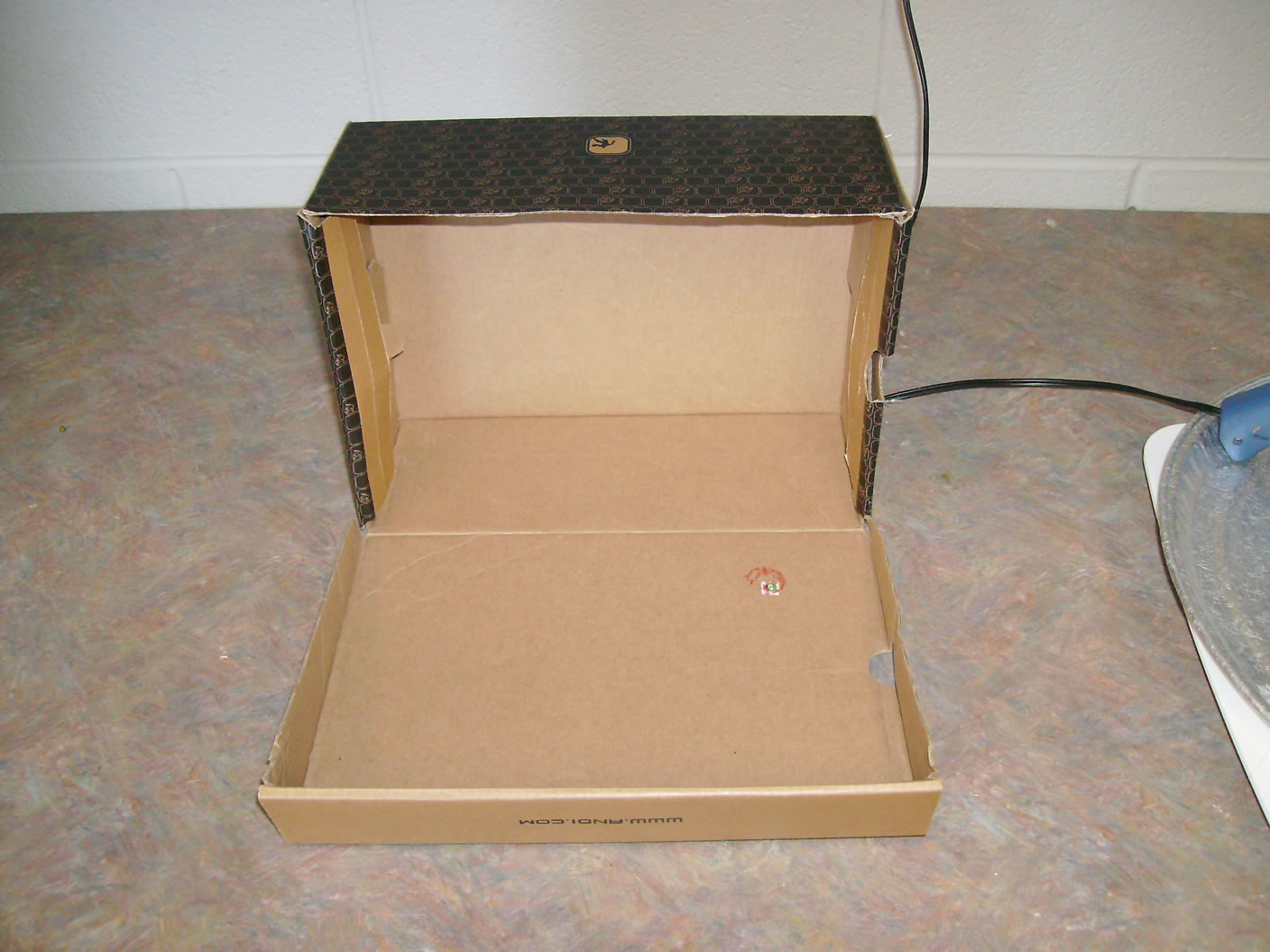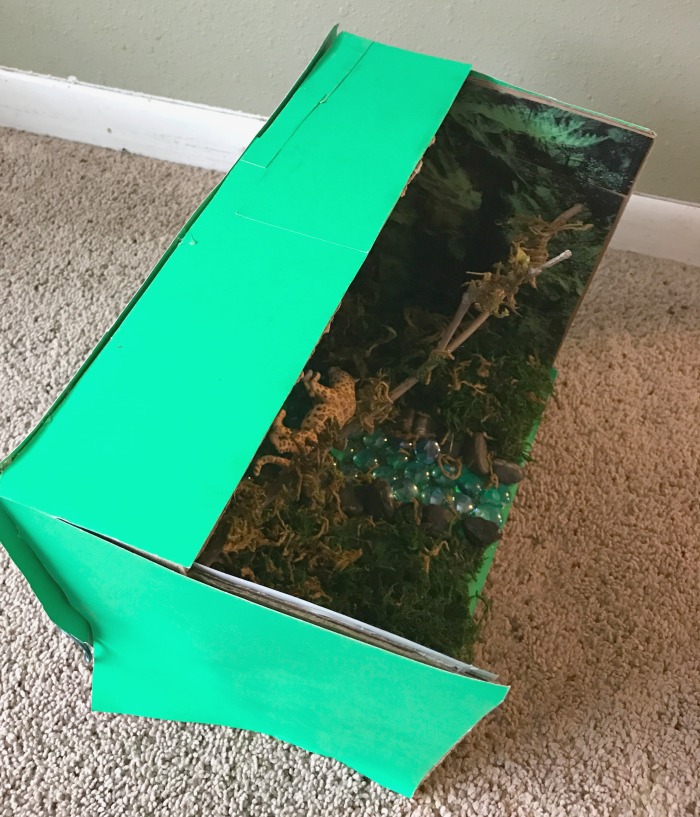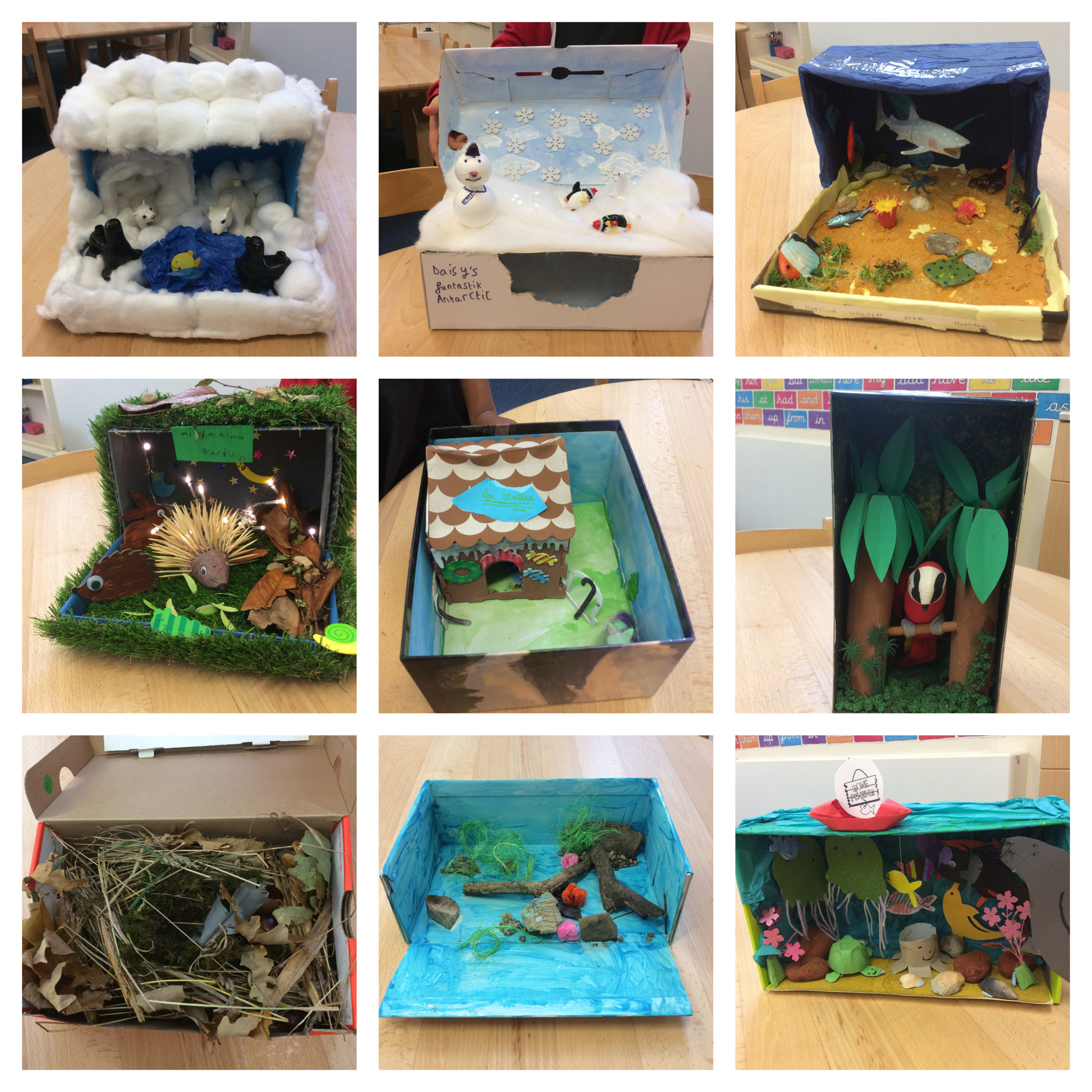
Pin en Crafts
Choose your animal. Lay the lid of the shoebox on a surface with the inside showing. Glue one side of the shoebox and stand it up on a lid. Decorate the shoebox, so it looks like the habitat of your animal - use different colour paper, twigs, leaves, and anything else you can think of! Place your animal inside!

Habitat Project
Overview. Get creative with your students in this hands-on lesson plan! Students will use mostly natural materials to build a shoebox habitat that mimics a real-life habitat for an animal of their choice. As they present their miniature habitats to each other, students realize that not all habitats are suitable for all animals.

Shoebox Habitat Coral Reef Habitats projects, Ecosystems projects
Habitat Diorama Project. • Each student will create a diorama (a scenic representation in which sculpted figures and lifelike details are displayed) showing their selected habitat. To create the diorama project, a shoe box or other small box may be used as the space for the diorama. The box should not be bigger than an adult sized shoebox.

St. Clare's Class Blog Shoebox Habitat Science Project
Making a Polar Habitat Diorama. Some ideas of items you can use to create your Arctic Diorama once you have your shoebox: Little polar toy animals / if you don't have any why not make some with some air drying clay/ print some little images of arctic animals out and stick them in place/ lego animals etc; Cotton wool/pads; Glue; Blue water.

Easy Animal Habitat Project For KidsWith Step by Step Instructions
Instructions. 1 Choose an animal for your diorama. 2 Lay the lid of your shoebox on a table with the inside showing. 3 Put glue on one side of the shoebox and stand it up on the lid. 4 Decorate your shoebox so that it looks like the habitat of your chosen animals. 5 Once your diorama is decorated, you can place your animal inside.

Shoebox Sea Life Habitat YouTube
7 Position the animals. a.) Position the animals with tabs inside your diorama. Glue the tabs to the bottom and/or sides of the box. b.) Position the animals without tabs on top of the ice chunks. This seal was glued on top of a small paper bowl (cut in half), making it look like it was resting on top of a slab of ice.

Jordyn's Alligator Habitat Shoebox Science Fair Projects, School
Habitat Design Instructions. Cut off or remove the top of your shoe box. Use an adult-sized shoe box or a bigger packing box. Set the box on its side so you can see inside. Your box will now have five inner sides including the bottom, top, back, and left and right panels. Glue or tape blue construction paper to the back, left and right panels.

Pin on Ecosistemas
Build a Biome: Create a Background. •••. Take the lid off the shoebox and turn the box on its side, length-wise. Avoid shoeboxes that are made from glossy or coated papers, as the paint may not stick. Have the student draw a background on the inside of the box with a thin marker.

Class 2's Shoebox Habitats Aberford C of E (VC) Primary School
First things first! You need to choose what habitat you would like to create. You can make your diorama about grasslands, the desert, the forest, the Arctic, or the ocean. OK, the next step is to gather pictures of the habitat and the animals in it. These will serve as your inspiration as you move forward. Then, it is time to get to work!

How To Make Mountains For A Diorama Model Railroad Tunnels virarozen
If you find yourself dragging your budding biologist out of the zoo kicking and screaming, an animal habitat project is an ideal way to appease her need for nature. Before you begin to fret over finding all of the artsy materials that you will need to help her create a habitat, take a look in your closet and reuse a.

shoebox zebra diorama Habitats projects, Diorama kids, Zoo project
Dioramas are a project often assigned by teachers at all grade levels and may require students to artfully reconstruct an animal habitat. Using a shoe box as the basis for the diorama allows the student to transport and contain the habitat for scoring and classmate review.
Shoebox Habitat Projects
Creating a habitat inside a shoebox is a great way to illustrate the concept of a habitat to children. Shoebox. Coloured card. Small toy animals. Cotton balls. scissors. Other decorations. First research the habitat that the shoebox will display. Try to include several different plants and animals for each type.

an open blue box with sea animals and fish in it on top of a wooden table
Finally, add animals to the habitat. You can either use toy animals you already own or create your own animals out of clay or drawings on stiff paper. If your animal is made of paper, make sure to create a base out of cardboard or stiff paper to help it stand up. Have your child make up stories and scenes within the habitat.

Sea Turtle shoebox diorama Ocean Projects, Animal Projects, Animal
Samaritan's Purse is a 501(c)(3) tax-exempt charity. All contributions designated for specific projects shall be applied to those projects, and we may assess up to 10 percent to be used for administering the gift. Occasionally, we receive more contributions for a given project than can be wisely applied to that project.
Shoebox Habitat Projects
Instructions. 1Choose an animal for your diorama. 2Lay the lid of your shoebox on a table with the inside showing. 3Put glue on one side of the shoebox and stand it up on the lid. 4Decorate your shoebox so that it looks like the habitat of your chosen animals.

Shoebox diorama African habitat Kids art projects, Animal habitats
How to Make a Simple Diorama. Recreate the mystical ambiance of a planetarium with a star-studded diorama for your kiddo's school project. Smear a bit of glow-in-the-dark paints over the box and see it glimmering during the night. Shoebox Diorama Picture.